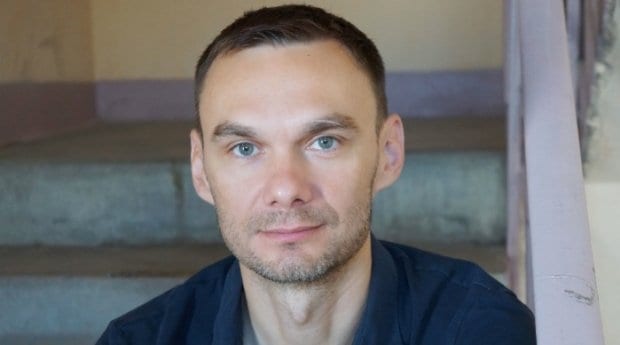A filmmaker under investigation for possibly violating Russia’s “gay propaganda” law is in Vancouver for the Aug 21 screening of his documentary film, the centrepiece gala at the Vancouver Queer Film Festival.
Children 404, directed by Askold Kurov and Pavel Loparev, documents the stories of Russian-speaking LGBT teens in the wake of the enactment of a 2013 anti-gay law that bans “propaganda of non-traditional sexual relations among minors.”
“One of the main reasons I did this was because I am gay and grew up in the Soviet Union, and I think I felt most of the same things these children feel, when you think you are alone, not okay, that something is wrong with you or maybe you are sick and so on,” says Kurov, who is visiting from Moscow. The film premiered at this year’s Hot Docs festival in Toronto and has since been screened in the United States, the United Kingdom, Europe, as well as at some “very brave” film festivals in Russia, Kurov tells Xtra.
The night before the official world premiere in Toronto, Kurov hosted an especially dramatic private screening in Moscow. Anti-gay activists found out and alerted the police, who stopped the film and demanded identification from audience members.
“It was terrible and people started to scream, ‘We want to see the movie,’ and finally they allowed us to resume the screening and it was very powerful,” Kurov recalls. “It was a very special screening because you could feel there was no difference between cinema and real life.”
Kurov and Loparev were subsequently summoned by Moscow prosecutors who questioned them about the film’s content, why they decided to make it and where they found their subjects.
“They started an investigation,” Kurov says. “We don’t know the result yet. They sent the film to some experts, and people from the Ministry of Culture have to decide if it contains gay propaganda or not.”
The movie closely follows the journey of 18-year-old Pasha, who battled anti-gay harassment at school and in his community before moving to Toronto. Kurov first met him at a human rights protest in Moscow and he quickly became the public face for the film.
“We saw him for half a year because we had some abstract idea about LGBT rights in Russia but didn’t have any personal stories or good characters,” Kurov says. “But when I met Pasha I realized he is the subject and the character of this film.”
The faces and names of most interview subjects, however, were concealed to protect their safety. Pasha, who has since changed his name to Justin, would not be in danger as he was an adult and would be in Canada at the time of the film’s release.
“The bad news for Russia is that 70 percent of the children who we spoke with are going to move to another country to feel safe and free,” Kurov notes. “After Justin moved to Canada and started to apply for his asylum, he got a great help from organizations like the Rainbow Refugee Committee. If you can help these children who want to move to another country, maybe you can support these organizations.”
The youth in Children 404 are members of an online community, also called Children 404, that offers information, support and advice to LGBT teens who share their own stories in a closed forum. The number 404 refers to the common internet error message for a missing page as well as the invisibility of LGBT youth in Russia.
“Now about 20,000 people are subscribers of this online group, and they received about 2,000 stories from children,” Kurov says.
Children 404 was started by Russian journalist Elena Klimova after she wrote a series of articles about the plight of LGBT youth in her country. “It is only on the internet that they can find somebody to speak to,” Klimova told The Guardian. “The feeling that most of these children feel is constant fear.”
In January she was charged with violating the gay-propaganda law. The following month, however, the courts ruled in her favour and the site is legal for now. Still, adult supporters, including psychologists who connect with youth over a closed forum, still risk prosecution.
“These people who support these children are in danger because it’s not legal to tell children that LGBT children are normal,” Kurov explains. “If you are a psychologist or a teacher, you are an adult and cannot tell children that it’s okay to be gay because it means you are making propaganda and promoting homosexuality. You can say that it’s bad to be gay, that you should get some treatment, or nothing at all.”
Kurov says his ultimate goal in making the film is to help bridge the gap between LGBT youth and their parents.
“I don’t think one film can change the situation or the country, but when we were making it we hoped that it could help some parents accept their children,” he says. “The main problem for these children was when their own parents didn’t accept them, and if this film can help any parents to change their minds about this, then we would be happy.”
Children 404
Centrepiece Gala
Thurs, Aug 21, 7pm
Vancouver Playhouse, 800 Hamilton St

 Why you can trust Xtra
Why you can trust Xtra


